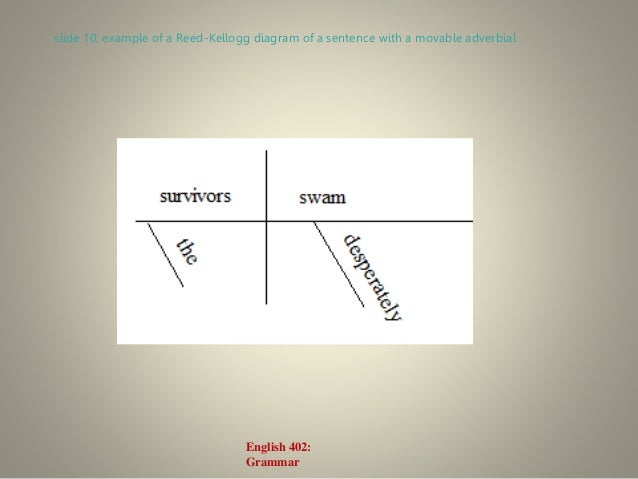Unlike other slots, those for adverbials are quite flexible; adverbials can generally occur in the following positions in a sentence:. at the beginning. at the end. medially, i.e., usually between other slots but sometimes within an element that fills a slot exx Cyanide very often smells like almonds. Definition of slot1 noun in Oxford Advanced Learner's Dictionary. Meaning, pronunciation, picture, example sentences, grammar, usage notes, synonyms and more. We use cookies to enhance your experience on our website, including to provide targeted advertising and track usage. Subject complement (SUBJECT COMPLEMENT SLOT) - Sentence Type IV The truth was that the home team came back from a 30-point halftime deficit. The truth was SOMETHING. Direct object (DIRECT OBJECT SLOT) - Sentence Type V. The side of the casing which is next to the seller is pierced centrally by two slots, one a vertical slot through which the weight is read on the drum, and the other a horizontal slot, half of it on each side of the vertical slot, through which the money values of the goods, corresponding to the different rates per lb, are read.
- as we say in a sentence (15) 12-15
- tear-off in a sentence (6) 12-15
- gradient descent in a sentence (16) 12-15
- photographic paper in a sentence (10) 12-15
- power amplifier in a sentence (143) 12-15
- parasitic capacitance in a sentence (23) 12-15
- Faraday cage in a sentence (12) 12-15
- soak time in a sentence (11) 12-15
- rye grass in a sentence (11) 12-15
- condensable gas in a sentence (12) 12-15
- theatre ticket in a sentence (14) 12-15
- sieve tube in a sentence (10) 12-15
- fourier analysis in a sentence (14) 12-15
- weighting factor in a sentence (21) 12-15
- medium-scale in a sentence (21) 12-14
- Euro- in a sentence (20) 12-14
- reporting system in a sentence (33) 12-14
- multipoint in a sentence (41) 12-14
- affectioned in a sentence (20) 12-14
- new data in a sentence (73) 12-14
- industrial cooperation in a sentence (19) 12-14
- effective management in a sentence (60) 12-14
- exponential smoothing in a sentence (23) 12-14
- dartmouth college in a sentence (13) 12-14
- drawing paper in a sentence (12) 12-14
- leguminous plant in a sentence (10) 12-14
- tail feather in a sentence (24) 12-14
- rated current in a sentence (22) 12-14
- master control in a sentence (15) 12-14
- ferric oxide in a sentence (24) 12-14
- us army in a sentence (40+1) 12-14
- neurite in a sentence (18) 12-14
- rake angle in a sentence (22) 12-14
- steering gear in a sentence (33) 12-14
- single standard in a sentence (23) 12-14
Coordination problems are at the root of some of the largest problems we have in society, like climate change.


What are coordination problems?
Coordination problems are the root cause of a lot of issues in society. Imagine each actor is a player in a game, and must choose a strategy based on the information available to them. Coordination problems are basically ‘games' with multiple outcomes, so they have to decide how to act.
The prisoner's dilemma
One example of this kind of problem is the prisoner's dilemma. Imagine you and an accomplice are arrested for murder. You are questioned at the same time, but in separate rooms, and you are not given a chance to talk to your friend before the interrogation. The twist is, there isn't enough evidence for a murder conviction so the police want to sentence you both for robbery, or try to get one of you to testify against the other for murder. The policemen offer you both the exact same deal: you can i) stay silent or ii) screw over your friend and say he's guilty of murder. If you both say stay silent then you both go to prison for just 1 year - we'll call this option ‘cooperating'. If you both betray each other then you both get 5 years behind bars - we'll call this ‘defecting'. If you stay silent and your friend betrays you then he gets off scot-free while you're sentenced to life imprisonment, and vice versa.

If we want to have the best ‘overall outcome', and we are certain that the other will also stay silent, then you might think that perhaps we would hypothetically cooperate and both serve 1 year. But if I'm certain that you will stay silent then I should logically decide to betray you and receive no punishment at all. If I did decide to stay silent, I would be exposed to the risk that you might rat me out, and I might have to spend my life in prison. So, the logical choice is for us both to defect - the options then would be i) I walk free or ii) I serve 5 years in prison.
When will the games end?
Hinckley casino buffet hours 2019. And we also often play an ‘iterated' coordination games in society, where we play the same game over, which changes the benefits to you (payoffs) to be more rational to cooperate than defect (if you don't know how many times you'll interact with this person again).
Harvard psychologist Joshua Greene argues (video) that morals evolved as a way to enforce social norms and increase group cooperation. Is there a casino near pigeon forge tennessee.
Examples of coordination problems
Cooperative behavior of many animals can also be understood as an example of the prisoner's dilemma. Often animals engage in long term partnerships, which can be more specifically modeled as iterated prisoner's dilemma. For example, reciprocal food exchange (you feed me today and I'll feed you tomorrow… or will I…?)

Examples of the prisoner's dilemma include: countries individually benefitting economically from not limiting their carbon emissions, to everyone's detriment; athletes using performance enhancing drugs to be more individually competitive, when all athletes would be worse off if everyone did it; etc.
Hot shots casino slots free. Advertising is also cited as a real-example of the prisoner's dilemma. When cigarette advertising was legal in the United States, competing cigarette manufacturers had to decide how much money to spend on advertising. Advertising doesn't increase the number of smokers by as much as it does take customers from other manufacturers. In this sense, advertising is not cooperating, because if the firm wants to keep their customers, they'll have to spend more on advertising as well, leading to a downward spiral. When cigarette advertisements were banned, profits actually increased (as explained in this video).
Monopolies increase prices because the firms involved can cooperate to keep them high. The more a market share is dispersed across different firms (measured by the concentration ratio), the less they can cooperate (i.e. one is more likely to defect and lower prices).
Coordination problems in preventing human extinction
Toby Ord — a Senior Research Fellow in Philosophy at Oxford University — has a new book The Precipice: Existential Risk and the Future of Humanity which discusses the coordination problems preventing human extinction:

What are coordination problems?
Coordination problems are the root cause of a lot of issues in society. Imagine each actor is a player in a game, and must choose a strategy based on the information available to them. Coordination problems are basically ‘games' with multiple outcomes, so they have to decide how to act.
The prisoner's dilemma
One example of this kind of problem is the prisoner's dilemma. Imagine you and an accomplice are arrested for murder. You are questioned at the same time, but in separate rooms, and you are not given a chance to talk to your friend before the interrogation. The twist is, there isn't enough evidence for a murder conviction so the police want to sentence you both for robbery, or try to get one of you to testify against the other for murder. The policemen offer you both the exact same deal: you can i) stay silent or ii) screw over your friend and say he's guilty of murder. If you both say stay silent then you both go to prison for just 1 year - we'll call this option ‘cooperating'. If you both betray each other then you both get 5 years behind bars - we'll call this ‘defecting'. If you stay silent and your friend betrays you then he gets off scot-free while you're sentenced to life imprisonment, and vice versa.
If we want to have the best ‘overall outcome', and we are certain that the other will also stay silent, then you might think that perhaps we would hypothetically cooperate and both serve 1 year. But if I'm certain that you will stay silent then I should logically decide to betray you and receive no punishment at all. If I did decide to stay silent, I would be exposed to the risk that you might rat me out, and I might have to spend my life in prison. So, the logical choice is for us both to defect - the options then would be i) I walk free or ii) I serve 5 years in prison.
When will the games end?
Hinckley casino buffet hours 2019. And we also often play an ‘iterated' coordination games in society, where we play the same game over, which changes the benefits to you (payoffs) to be more rational to cooperate than defect (if you don't know how many times you'll interact with this person again).
Harvard psychologist Joshua Greene argues (video) that morals evolved as a way to enforce social norms and increase group cooperation. Is there a casino near pigeon forge tennessee.
Examples of coordination problems
Cooperative behavior of many animals can also be understood as an example of the prisoner's dilemma. Often animals engage in long term partnerships, which can be more specifically modeled as iterated prisoner's dilemma. For example, reciprocal food exchange (you feed me today and I'll feed you tomorrow… or will I…?)
Examples of the prisoner's dilemma include: countries individually benefitting economically from not limiting their carbon emissions, to everyone's detriment; athletes using performance enhancing drugs to be more individually competitive, when all athletes would be worse off if everyone did it; etc.
Hot shots casino slots free. Advertising is also cited as a real-example of the prisoner's dilemma. When cigarette advertising was legal in the United States, competing cigarette manufacturers had to decide how much money to spend on advertising. Advertising doesn't increase the number of smokers by as much as it does take customers from other manufacturers. In this sense, advertising is not cooperating, because if the firm wants to keep their customers, they'll have to spend more on advertising as well, leading to a downward spiral. When cigarette advertisements were banned, profits actually increased (as explained in this video).
Monopolies increase prices because the firms involved can cooperate to keep them high. The more a market share is dispersed across different firms (measured by the concentration ratio), the less they can cooperate (i.e. one is more likely to defect and lower prices).
Coordination problems in preventing human extinction
Toby Ord — a Senior Research Fellow in Philosophy at Oxford University — has a new book The Precipice: Existential Risk and the Future of Humanity which discusses the coordination problems preventing human extinction:
Uncoordinated action by nation states therefore suffers from a collective action problem. Each nation is inadequately incentivised to take actions that reduce risk and to avoid actions that produce risk, preferring instead to free-ride on others. Because of this, we should expect risk-reducing activities to be under-supplied and risk-increasing activities to be over-supplied. This creates a need for international coordination on existential risk.
See where you can pre-order The Precipice here.
Slot Example Sentences
Also check out
Slot Sentence Example
Prisoner's dilemma: Real life examples, Wikipedia
Free rider problem, Wikipedia
Game Theory, Coursera
